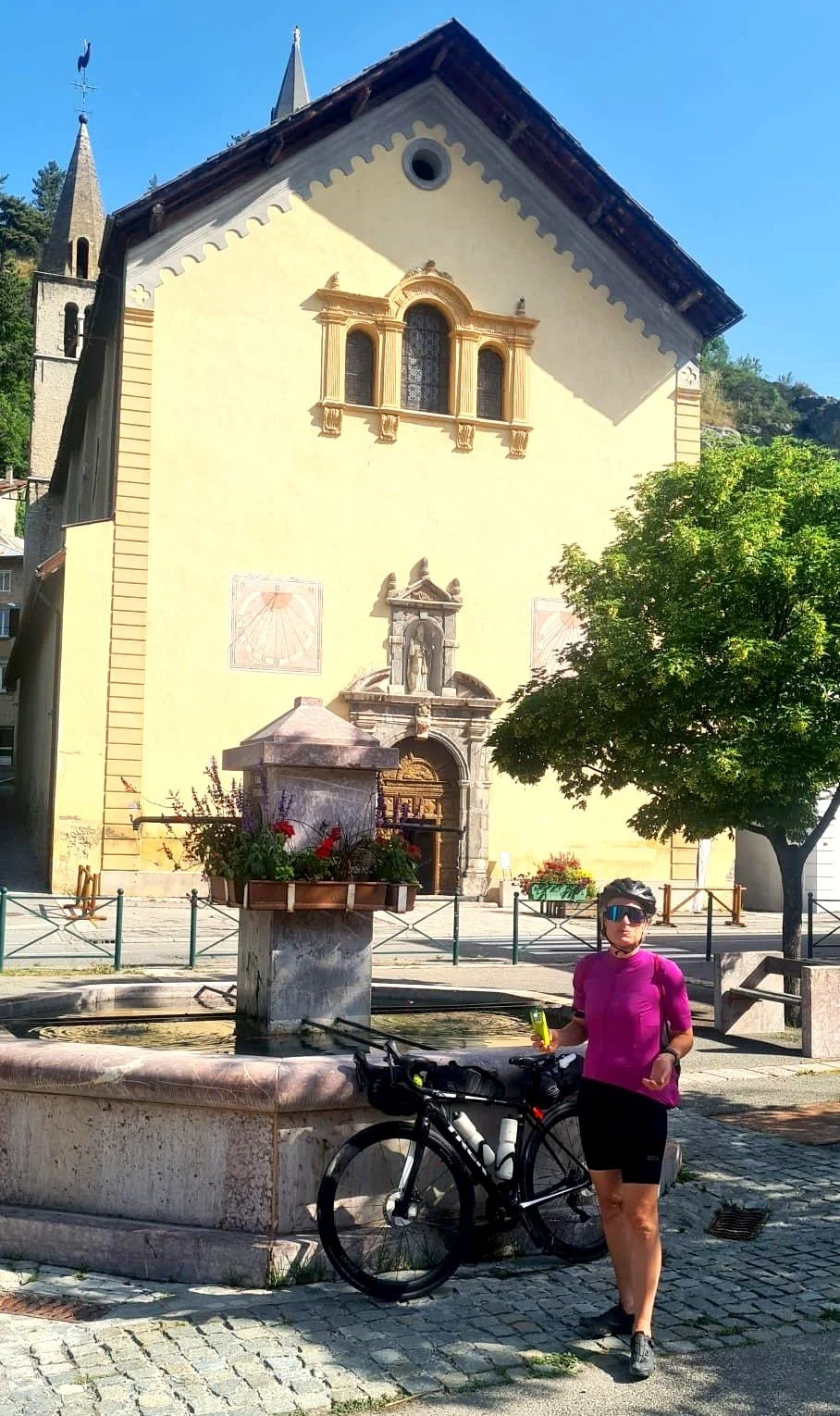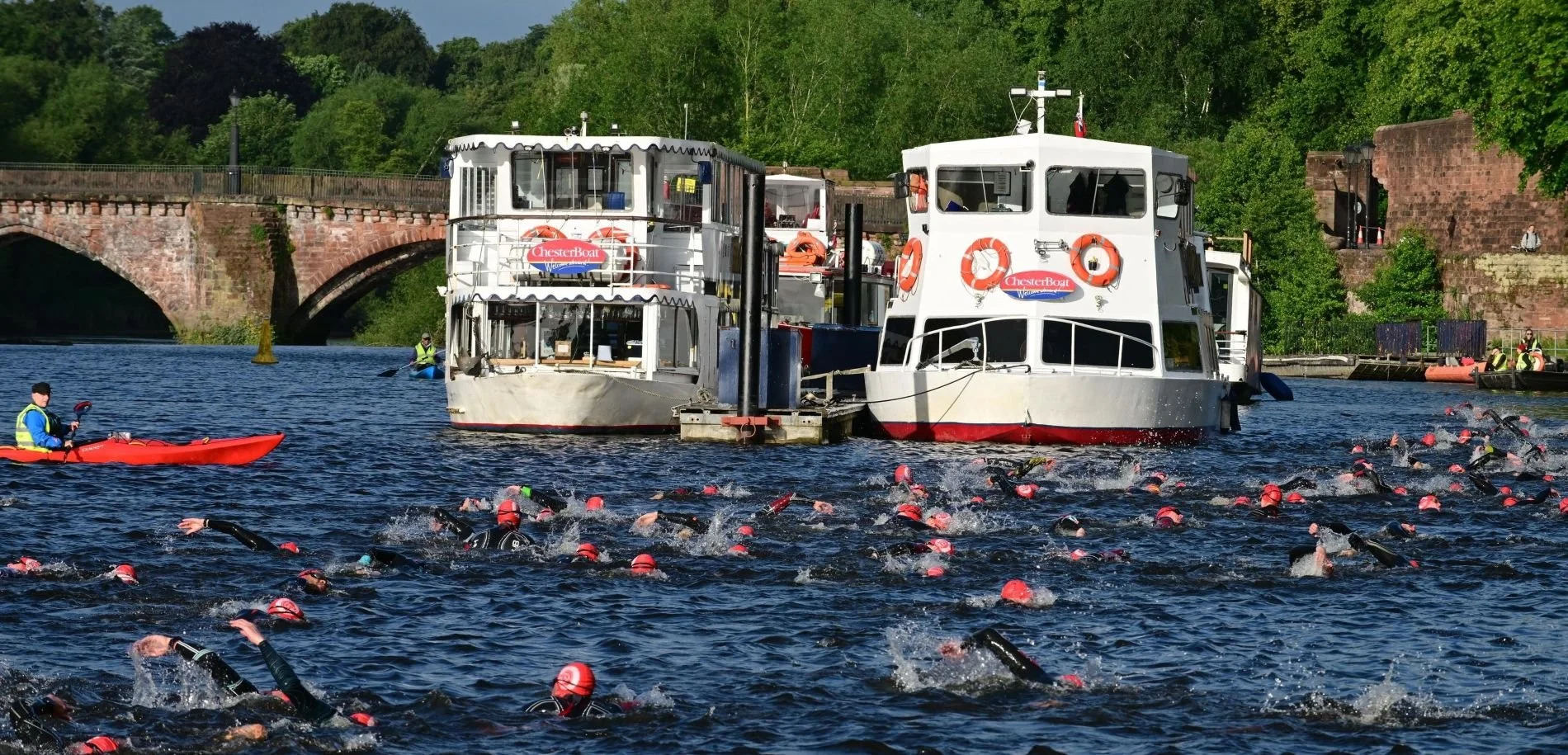Ironman Barcelona 2025
12-weeks to go
I’m now over halfway through my training plan for Ironman Barcelona 2025 and with just under three months to go, I can definitively say that I am completely shattered! I’d forgotten just how all-encompassing it can be to train for such a long event. It’s such a big day out that if you want to complete it in a reasonable time in as little pain as possible then you need to do a significant amount of training. For the majority of us it is the only way!
So that’s what I’m doing at the moment, training, training and more training. It’s tough. In the last 6 weeks, I’ve completed a 100-mile time trial event on the bike, and a half ironman distance event. I spent 2 weeks cycling in the French Alps – which was amazing (pictures below), and yesterday, I ran 27 hilly kilometres in the Peak district. These are just a few of the more notable activities. On top of these, I’ve spent many hours at the swimming pool, run plenty of shorter efforts, and cycled in circles around the local lanes.
October 2014: Ironman World Championships
Hero to zero (and hopefully back again)
An Ironman distance triathlon was the last big physical event that I completed back in 2014 before my health took a major nosedive. In fact, it was almost the nail in the coffin for me! So what would possess me to do another one you may wonder… and in all honesty, I’m beginning to wonder that myself. 😊
I went from hero to zero in 2014, from running marathons at will, cycling hundreds of miles to barely being able to get out of bed. And I hated it. I hated not being able to do the things that I wanted to do, the things that I could do just a few months earlier, and I made it my mission to get myself back to the level of health and fitness that would enable me to do another one. I wanted to prove that I could, but I’m not sure who I wanted to prove that to. It became an obsession of mine, my Holy Grail.
And now I’m almost there, I am feeling a little conflicted by the situation. The old me set that goal, but I’ve changed beyond recognition over the last 10 years. I’m not that person anymore. Yes, I still have some of the traits. Yes, I am still quite driven, but less so. I’m now much more conscious of nourishing my body to maintain my health, and while exercise has so many healthful benefits, exercising at this level has its risks (as I am all too aware of). I’m managing these risks now, prioritising rest, recovery and refuelling, but it doesn’t leave much time for anything else.
A New Chapter
I still want to complete Ironman Barcellona, and I still want to do a decent time, so I will continue to train hard over the coming 12 weeks. But I’m also conscious, that by dedicating so much of my time to this goal, I’m not able to dedicate enough of my time to my son, husband, friends, work, spiritual practice, or yoga. The list goes on. There are only so many hours in the day and when you commit to an event such as this, it’s difficult to get the balance right.
So while I am still enjoying the journey, I am pretty sure that once I have ticked this off my must do list, I’ll be hanging up my Ironman boots for the foreseeable future. I’ve nothing to prove, not to me or to anyone else. I have recovered from chronic fatigue, from breast cancer, from the bit of conventional treatment that I had before withdrawing. This Ironman event will be the end of a 10-year long journey for me, and I’m very looking forward to starting the next chapter, where I dedicate more of my time to other areas of my life that also bring me joy and fulfilment. Areas, that nourish the soul, not just my muscles!
Highlights of 2025 So Far
“People do not decide their futures, they decide their habits, and their habits decide their futures.”
— F.M. Alexander -
The adage "people do not decide their futures, they decide their habits and their habits decide their futures" holds profound truth, particularly when considering the creation of a bodily environment where cancer struggles to thrive. This demands consistent healthy choices in what we eat, how we live, and our surroundings, day after day. These healthy daily habits can pave the way for long-term well-being. And, as someone who has been in a deep health challenge, I can attest that fundamentally changing your daily habits and choices can be transformative for your recovery potential.
June 2024: Deva T100 (Middle Distance) Triathlon Swim.
How I can help you.
If you or someone you care about has been affected by cancer or another chronic illness and would like guidance in rebuilding health, I would be honoured to help. Please explore my 90-day programs for detailed information on how I can support you. Alternatively, if you have any questions, you can contact me directly here. Having personally navigated the profound challenges of this journey, I am deeply committed to supporting you, helping you navigate potential obstacles I encountered, and empowering you to take a more active and informed role in your health, recovery, and return to well-being and fitness.
Sarah Eglin: Nutritional Therapist and Lifestyle Medicine Practitioner
If you would like to read more about my personal experience with breast cancer and my journey back to health then please click on the following links for more in depth information.
You can also join follow me on Facebook or Instagram.
Exercise and cancer: An important reminder
Before I go, I just want to remind you of the extensive benefits of exercise in the context of cancer, supported by the latest scientific evidence. In essence, there is a growing body of research that consistently demonstrates that exercise, both during and after cancer treatment*, is associated with:
Reduced cancer recurrence rates
Decreased side effects from conventional treatments
Improved immune system function
Minimised loss of lean muscle mass
Enhanced bone health
Exercise is even being considered a form of 'targeted medicine' in relation to cancer, with evidence suggesting that it may:
Improve an individual's response to conventional cancer therapies.
Stimulate the immune system to help eliminate cancer cells.
Slow the progression of the disease.
Increase survival rates.
Given these compelling findings, identifying a type of exercise that can be sustained both during treatment and long-term afterwards is crucial for your recovery. I fully understand that initiating a formal exercise regimen during chemotherapy can be challenging if you haven't exercised regularly for a while*. However, movement is key. Aim to move as much as your body allows during these demanding times and gradually build from there. Remember, formal exercise isn't always essential; consistent movement is. Our bodies are inherently designed for motion, not prolonged sitting. So, engage in activity: potter in the garden, take a walk, climb the stairs a few times – do whatever you can to incorporate movement into each day. Then, gradually increase the intensity and duration at a pace that suits you and your current stage of recovery.
Notes
*Always check with your doctor before starting any new training regime. If you are currently in the midst of cancer treatment then extra care must be taken when considering the appropriate level of exercise for you. Please seek advice from an appropriately qualified health professional experienced in exercising through cancer treatment.















